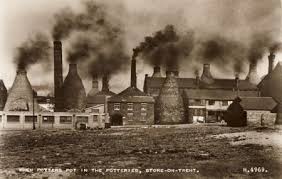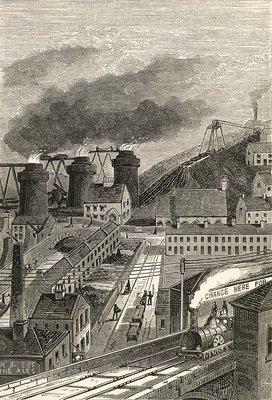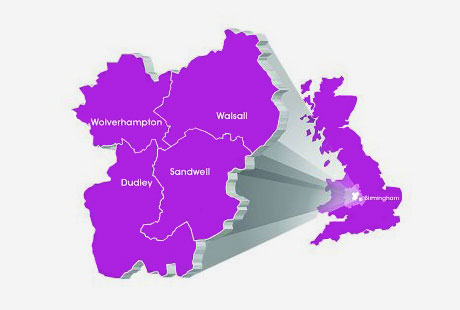The Black Country, UK
The Black Country is a region in the West Midlands of England, traditionally made up of the boroughs of Dudley, Sandwell, Walsall, and Wolverhampton. It earned its name in the 19th Century (1800's) due to the black soot from the heavy industrial activity, especially coal mining, and iron foundaries, which darkened the skies and stained the landscapes and buildings.Why it is Important:The Black Country played a vital role in the Industrial Revolution, becoming one of the world's first industrialised regions. Its natural resources include: coal, iron ore, limestone, and clay. This promoted rapid development in industries like coal mining, iron and steel production, glass making, chain and nail making. These factories and forges helped power Britain's growth into a global industrial superpower.Inventions and Innovations:The region was a hotbed of technological progress. Some key developments include: The Newcomen steam engine, the first iron rails, the anchor for the Titanic was forged here, innovative chain making (this also includes the famous chain for the titanic).The Black Country's craftsmen were known for creating small precise tools and machines, leading to it being described as a place 'where they make everything from an nail to an anchor'.What it Means for us Today:Industrial Legacy: The Black Country helped lay the foundation for modern industry and engineering around the world.Engineering Heritage: Its innovations still influence modern manufacturing and transport.Cultural Identity: The region has a strong cultural identity, with a unique dialect and pride in its industrial roots.Preservation: Sites like the Black Country Living Museum help keep history alive and educate new generations.The Black Country shows us how innovation, hard work and resourcefulness can transform a region and leave a legacy that shapes the world.
Author Withheld (Age out of range)







